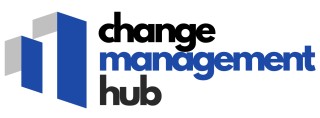Understanding the Need for Change in Property Management
The Driving Force Behind Change in Property Management
In today's rapidly evolving real estate market, the need for change in property management has never been more apparent. With the advent of cutting-edge management technology and a shift towards more sustainable practices, property managers are now tasked with adapting to an environment where efficiency and innovation are paramount. This transition is crucial to enhancing tenant satisfaction and achieving energy-efficient operations within properties. The real estate industry is witnessing a remarkable transformation where traditional management approaches are being replaced by data-driven methodologies. The integration of data analytics into property management processes has empowered managers to make informed decisions that bolster operational efficiency and improve tenant experiences. By utilizing real-time management software, managers can seamlessly handle maintenance requests and rental transactions, ensuring a smooth experience for tenants. Furthermore, the surge in smart technology solutions and software applications has revolutionized how property managers engage with tenants and address their needs. This results in significant improvements in tenant satisfaction and retention rates. As a result, managing estate properties has become more comprehensive and strategic, fostering a culture of innovation and adaptability. However, navigating these changes requires a structured change management approach to overcome challenges and mitigate resistance among stakeholders. Industry professionals must remain agile, continuously adopting new trends and predictive maintenance techniques that optimize resource allocation and support a sustainable future for property management. To stay ahead in this ever-competitive landscape, property management professionals should keep abreast of change management trends and strategies. Exploring the top strategies and tools can provide valuable insights into effectively implementing change and thriving in the modern property management sector. For additional insights, you can learn more about navigating change management trends and tools.Technological Innovations Transforming Property Management
Embracing Cutting-edge Solutions
The property management landscape is undergoing a profound shift as technology continues to evolve. In the realm of real estate, the integration of innovative tech solutions has enabled property managers to enhance operational efficiency and improve tenant satisfaction. These advancements are crucial for addressing the dynamic demands of the current market.
Automation and Smart Technology
At the forefront of this transformation is the adoption of smart technology. Modern real estate management ventures utilize smart devices and systems to automate maintenance tasks and streamline management processes. From automated maintenance requests to energy-efficient lighting systems, these technologies not only reduce costs but also elevate the tenant experiences. This transition paves the way for more effective property oversight and tenant-relations management.
The Power of Management Software
Innovation in property management is further driven by advanced management software. This software enables property managers to handle multiple aspects of estate management with unparalleled ease, from rent collection to lease tracking and tenant communication. By leveraging these tools, property managers can increase efficiency and ensure a seamless operational flow.
Advanced management technology often integrates capabilities for real-time monitoring and easy access to data, fostering informed decision making. Such tools serve as a knowledge center, providing property managers with the insights needed to accurately assess trends and act proactively.
Data-Driven Insights
The incorporation of data analytics into property management has unlocked unprecedented opportunities for improvement. By analyzing data related to tenant behaviors and preferences, property managers can make data-driven choices that enhance tenant satisfaction. This proactive approach enables commercial real estate operations to remain agile and responsive to market demands.
Moreover, strategies such as predictive maintenance are made possible through data insights, allowing managers to anticipate and resolve issues before they escalate. This not only extends the lifespan of properties but also minimizes disruptions for tenants.
As https://www.change-management-hub.com/blog/mastering-change-management-in-the-era-of-digital-transformation suggests, the intersection of technology with property management requires a robust understanding of digital transformation, highlighting the critical need for property managers to stay informed and adaptive.
The Role of Data Analytics in Property Management
Data-Driven Insights for Enhanced Property Management
In the evolving landscape of property management, data analytics stands out as a pivotal tool for enhancing operational efficiency and tenant satisfaction. By leveraging real-time data, property managers can make informed decisions that improve the overall management of properties and elevate tenant experiences.
Data analytics enables property managers to track and analyze various metrics, such as rental trends, maintenance requests, and tenant feedback. This data-driven approach helps in understanding market dynamics and optimizing rent pricing strategies, ensuring competitiveness in the real estate market. Moreover, predictive maintenance powered by data analytics can significantly reduce downtime and costs, as issues are addressed before they escalate into major problems.
Utilizing Smart Technology for Better Decision Making
Smart technology integration in property management is another key innovation transforming the industry. By incorporating smart devices and IoT solutions, property managers can gather valuable insights into energy consumption patterns, enhancing the energy efficiency of buildings. This not only reduces operational costs but also aligns with sustainable practices, a topic explored further in another section.
Furthermore, management software equipped with data analytics capabilities allows for seamless tracking of tenant interactions, leading to improved tenant satisfaction. By understanding tenant preferences and behaviors, property managers can tailor their services to meet specific needs, fostering a more personalized tenant experience.
As the industry continues to embrace change, the role of data analytics will only grow more prominent. For those interested in exploring how digital transformation is shaping modern management, a deeper dive into understanding the role of primary and noncontributory in change management can provide valuable insights.
Sustainable Practices in Modern Property Management
Innovating for Sustainable Property Management
In the ever-evolving landscape of property management, sustainable practices have emerged as a cornerstone for modern real estate management. As markets increasingly demand energy-efficient properties, property managers are seeking innovative solutions to enhance efficiency and tenant satisfaction concurrently. By integrating sustainable practices into everyday operations, properties can not only reduce their environmental footprint but also increase their appeal to environmentally conscious tenants. One of the primary ways property managers are achieving this is through the implementation of smart technology. Smart devices allow for real-time monitoring of energy usage, giving managers the ability to optimize energy consumption based on tenant behavior and external conditions. This data-driven approach enables predictive maintenance, reducing the likelihood of costly repairs and ensuring properties remain efficient. Modern property management has also seen a shift towards using management software that emphasizes sustainability. This software helps streamline maintenance requests and ensure that eco-friendly materials and processes are used in repairs and installations. By adopting a digitally-driven strategy, managers can meet industry standards for sustainability while enhancing the longevity and value of their properties. Additionally, adopting sustainable practices fosters positive tenant experiences and improves tenant satisfaction, as more individuals are seeking to partner with environmentally responsible property owners. This trend in the rental market has created a competitive edge for properties that prioritize green practices, allowing them to attract and retain tenants who value sustainability. As the industry continues to evolve, innovations in management technology will play a critical role in developing future property strategies that are not only cost-effective but also sustainable for long-term growth. Embracing these changes ensures that managers remain at the forefront of property management excellence, meeting both current and future demands of the real estate market.Overcoming Challenges in Implementing Change
Managing Obstacles in the Pathway to Change
Adopting and implementing changes in property management can pose several challenges. As technology and data analytics become central to property operations, managers face hurdles in adapting to these transformations efficiently. One significant roadblock is the integration of new management technology into existing systems. Balancing old and new practices while ensuring that data-driven models assist more than they complicate operations requires careful consideration. Property managers frequently confront resistance to change within their teams. Employees accustomed to traditional methods may struggle to embrace innovations like smart technology and predictive maintenance systems. Effective communication and continuous education are vital in addressing this resistance and ensuring that teams comprehend the benefits and applications of these changes. Another challenge lies in maintaining and enhancing tenant experiences. With technology playing an increasingly central role in operations, managers must ensure that it serves to improve tenant satisfaction and not detract from personal interactions. Implementing smart solutions for maintenance requests and rent management can enhance efficiency but requires proper training and dedication to tenant-centric service. Financial constraints also influence the ability to implement technological transformations. Allocating resources effectively while ensuring that systems align with the goals of energy-efficient and sustainable estate management is crucial. Moreover, in commercial real estate management, the rapid pace of technological trends demands agility. Managers must stay informed about future properties' needs and prepare for shifts in the rental industry. Leveraging management software to make data-driven decisions can significantly aid in this regard, providing real-time insights into market trends and tenant behaviors. Ultimately, overcoming these challenges necessitates persistence, continued learning, and an open mindset. Property managers who successfully navigate the intricacies of change management can foster innovation and progress within their operations.Future Trends in Property Management
Navigating the Road Ahead in Real Estate Management
The dynamic realm of property management continuously evolves, prompting managers to stay ahead of the curve concerning emerging trends. The deployment of smart technology is becoming increasingly pivotal in streamlining processes and enhancing tenant satisfaction. Real-time data analytics and management software are reshaping decision-making strategies, offering property managers invaluable insights into tenant experiences and maintenance needs.
Predictive maintenance, for instance, allows for timely interventions, reducing potential disruptions in rental operations. As the property management sector embraces energy-efficient practices, managers are also focusing on sustainable methods that promote long-term efficiency. The integration of technology not only boosts operational efficiency but also caters to the sustainability demands of modern tenants.
In the face of constant technological shifts, property managers must address challenges such as data security and the adaptation to new systems. The continuous training of staff in data-driven environments is essential, ensuring they possess the skills to navigate these innovations effectively.
Looking towards future property management practices, trends indicate an increased focus on leveraging management technology to deliver personalized tenant experiences. The adoption of systems that cater to the unique needs of commercial real estate highlights the importance of tailoring solutions in this competitive market.
Ultimately, the future of estate management will depend on the industry’s ability to harness technology, boost tenant satisfaction, and optimize rental processes. As property managers adapt, it's crucial to remain informed and proactive, enabling a seamless transition into the evolving landscape of real estate management.









